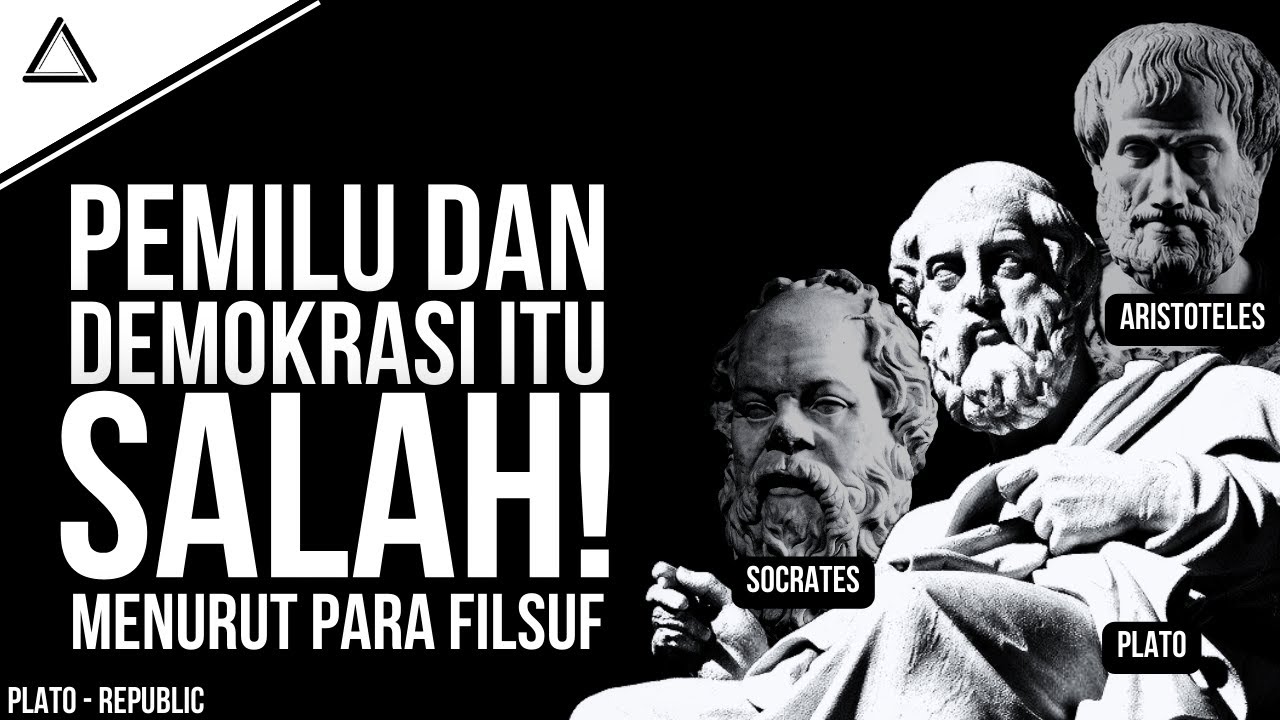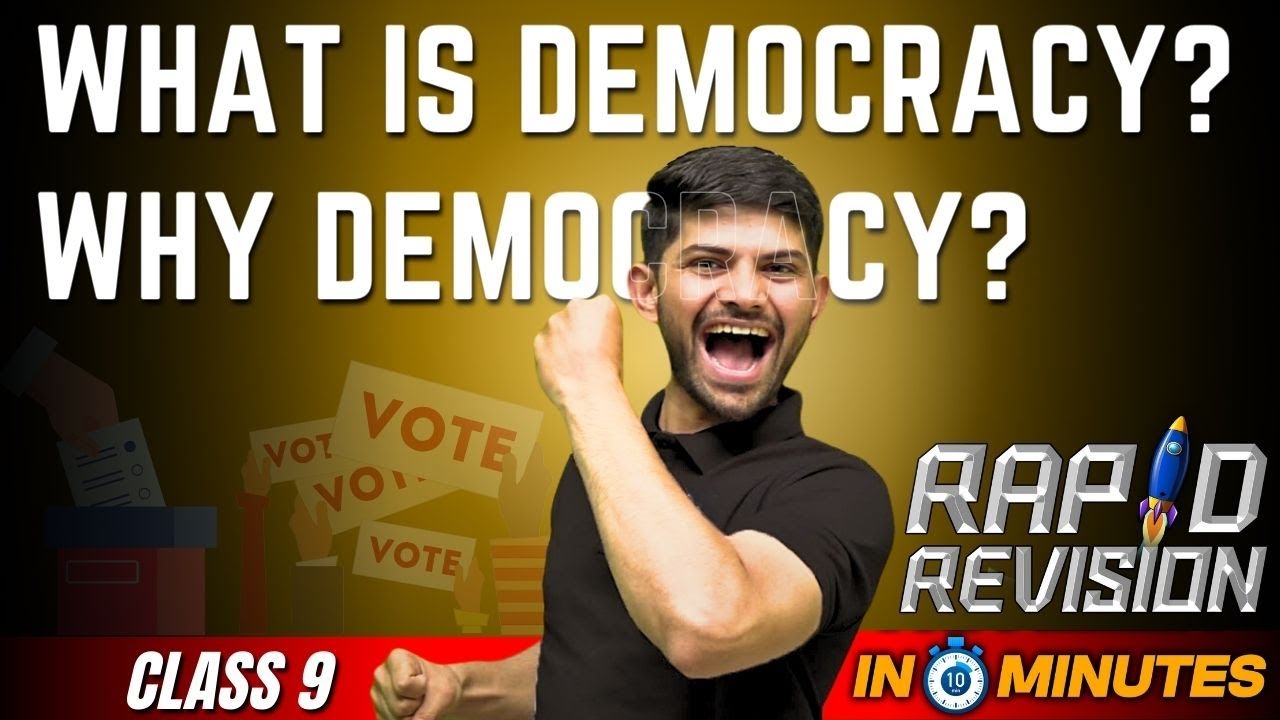01 Wahlen und indirekte Demokratie
Summary
TLDRThe script discusses the concept of democracy, focusing on the role of elections in modern indirect democracies. It explains how citizens, though not directly governing, exercise power by choosing representatives through elections. The importance of elections as a tool for political decision-making, public debate, and peaceful power transitions is highlighted. It contrasts democracies with authoritarian regimes by emphasizing the principles of regular, competitive elections. The script also touches on Austrian election laws, mentioning the history of voting rights and the gradual abolishment of compulsory voting in different regions.
Takeaways
- 🗳️ In a democracy, the people do not directly govern themselves but decide who will represent them through elections.
- 💼 The power of citizens in a democracy is expressed as voting power, which is a fundamental aspect of indirect democracy.
- 🏛️ Citizens elect representatives and political officials through elections, who are responsible for decision-making on their behalf.
- ⚖️ Elections are a crucial instrument for political decision-making and self-determination in modern democracies.
- 🔄 Regular, competitive elections enable peaceful political power transitions, distinguishing democracies from dictatorships or authoritarian regimes.
- 🎤 Elections also provide a platform for public political debate, especially during election campaigns.
- 🔍 Elections serve as a critical tool for political control, allowing citizens to hold their leaders accountable.
- 🇦🇹 In Austria, elections must adhere to constitutional principles: they must be universal, free, equal, secret, direct, and personal.
- ❌ Austria no longer has compulsory voting; this was abolished in various regions by 2004, with regional differences prior to that.
- 📜 The abolition of compulsory voting in Austria reflects the evolving nature of electoral policies over time.
Q & A
What is the primary role of elections in a democracy according to the script?
-Elections in a democracy allow citizens to decide who will govern or represent them. They provide an expression of the idea of self-determination and self-government.
How does the script describe the difference between direct democracy and indirect democracy?
-In direct democracy, citizens make decisions directly on issues, while in indirect democracy, decisions are made by elected representatives. Indirect democracy emerged as an evolution from the direct rule of ancient Greek democracy.
Why are elections considered important for political will formation and decision-making?
-Elections are seen as the most important instrument for political will formation and decision-making because they represent the opinions and interests of the population, select political leaders, and facilitate public political debate, especially during election campaigns.
What are some principles of democratic elections mentioned in the script?
-The principles include general, free, equal, secret, immediate, and personal elections. These principles regulate who can vote and how elections are conducted.
How do regular, competitive elections contribute to democracy?
-Regular competitive elections allow for peaceful changes of power and serve as an instrument of political control, distinguishing democracies from authoritarian regimes.
What was a key feature of Austrian elections that the script highlights?
-Austrian elections historically included variations in compulsory voting across different regions. Some federal states had compulsory voting, but it was abolished nationally in 1992.
What does the script say about public discussions during elections?
-Elections, particularly election campaigns, offer an opportunity for public debate about political issues, making them a platform for discussing political views and policies.
How are democracies distinguished from dictatorships according to the script?
-Democracies are distinguished from dictatorships by their regular, legally mandated elections that offer the possibility of a peaceful transfer of power, which is absent in authoritarian or totalitarian regimes.
What is the significance of electoral law principles in Austria?
-Electoral law principles ensure that elections in Austria are held according to democratic standards, such as being free, equal, and secret, and they define who is eligible to vote.
What is the script's view on the concept of self-government in modern democracy?
-The script suggests that modern democracy embraces self-government through the election of representatives, transitioning from the direct rule seen in ancient democracies to a new understanding of popular sovereignty.
Outlines

Этот раздел доступен только подписчикам платных тарифов. Пожалуйста, перейдите на платный тариф для доступа.
Перейти на платный тарифMindmap

Этот раздел доступен только подписчикам платных тарифов. Пожалуйста, перейдите на платный тариф для доступа.
Перейти на платный тарифKeywords

Этот раздел доступен только подписчикам платных тарифов. Пожалуйста, перейдите на платный тариф для доступа.
Перейти на платный тарифHighlights

Этот раздел доступен только подписчикам платных тарифов. Пожалуйста, перейдите на платный тариф для доступа.
Перейти на платный тарифTranscripts

Этот раздел доступен только подписчикам платных тарифов. Пожалуйста, перейдите на платный тариф для доступа.
Перейти на платный тарифПосмотреть больше похожих видео

CBSE Class 9 Civics - 2 || What is Democracy Why Democracy || Full Chapter || By Shiksha House

Sejarah Komisi Pemilihan Umum (KPU) RI

ANOMALI PILKADA 2024 | VISI NOMOKRASI - EPISODE 2

Sejarah Dan Kritik Demokrasi Dan Pemilu Menurut Socrates, Plato Dan Aristoteles

The Problem With Democracy

What is Democracy? Why Democracy | 10 Minutes Rapid Revision | Class 9 SST
5.0 / 5 (0 votes)
